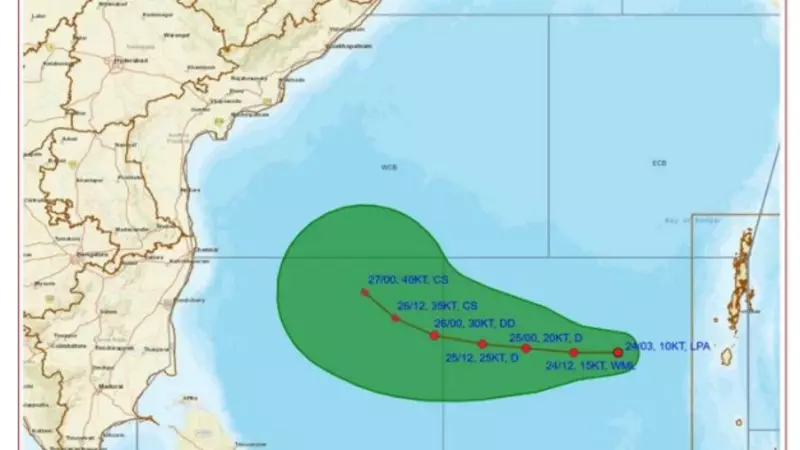
The India Meteorological Department has issued a severe weather warning for Andhra Pradesh, predicting the formation of a cyclonic system that is expected to bring extremely heavy rainfall to the state's coastal regions starting next week.
IMD's Severe Weather Outlook
According to the latest meteorological data, a low-pressure area is likely to form over the southeast Bay of Bengal around December 4th. Weather models indicate this system will intensify into a more organized cyclonic circulation, potentially developing into a significant weather event that could impact the entire Andhra Pradesh coastline.
Districts on High Alert
The IMD has placed several districts under close monitoring, with particular concern for:
- Coastal Districts: Visakhapatnam, East Godavari, West Godavari, and Krishna districts
- Northern Regions: Srikakulam, Vizianagaram, and Prakasam districts
- Interior Areas: Some interior regions may also experience heavy to very heavy rainfall
Expected Impact and Precautions
Weather officials have warned that the impending cyclonic system could bring:
- Extremely heavy rainfall exceeding 20 cm in isolated areas
- Strong wind speeds reaching 60-70 kmph along the coast
- Rough sea conditions making fishing activities dangerous
- Potential flooding in low-lying coastal areas
Government Preparedness Measures
State authorities have been alerted to prepare for emergency response. The disaster management teams are on standby, with relief materials being positioned in vulnerable areas. Fishermen have been advised to avoid venturing into the sea starting from December 3rd as sea conditions are expected to deteriorate significantly.
The IMD continues to monitor the situation closely and will provide regular updates as the weather system develops. Residents in the affected areas are advised to stay informed through official weather bulletins and follow all safety instructions from local authorities.





